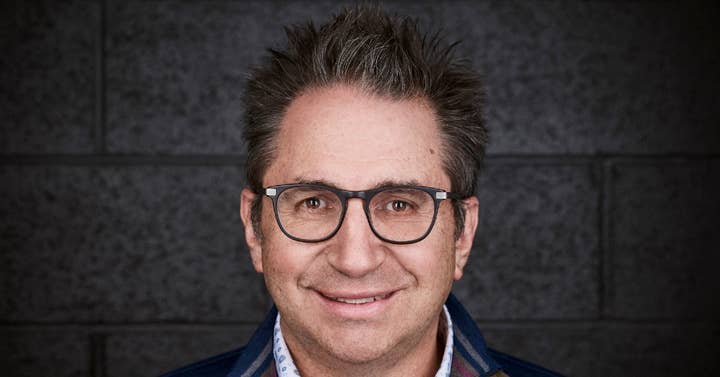Listening to your employees: Key lessons from the pandemic
Behaviour Interactive's Rémi Racine explores ways to address the micro-level impact of COVID and better support staff going forwards
Communication with your team is always a two-way street but the COVID-19 pandemic has made listening to them more important than ever.
As much as the pandemic has had a macro-level impact -- on society, on our institutions, on the economy -- it was the micro-level impact on the lives of our individual team members that emerged as a top concern for myself and the management team at Behaviour. This made listening to our team members paramount and turned our business units into something closer to family units in the process.
Speaking to our team and hearing their concerns and suggestions gave us a clear understanding of what both I as CEO and my management team needed to prioritize in order to keep our team feeling safe, confident and motivated. It also helped to fundamentally alter our thinking on where and how we work, lessons we will take with us well beyond the pandemic.
A little breakfast goes a long way
Behaviour welcomes employee feedback through various tools -- OfficeVibe, surveys and our quarterly All-Hands, to name a few -- all of which helped us to keep in touch with employee concerns and to address them quickly.
What I found most useful, however, was my commitment to having breakfast with every member of the Behaviour team at least once during the year, a tradition I started years ago and have maintained virtually during the pandemic. With our team now numbering more than 850, this means meeting with an average of two groups of 10 each week.

These breakfasts are a chance to have a direct talk with everyone and get to know them. We talk about the video game business, the challenges a company like ours faces and issues that are in the news. I also use the breakfast to test ideas and see how people respond. I get great feedback and suggestions.
During the pandemic, the breakfasts have been a chance to not just hear from our team, but to see them and get a sense for how they are all doing. It has meant listening with your eyes as well as your ears.
Among the lessons I've learned since the world went into lockdown in March 2020, there are three that I would say are essential when it comes to listening to your team:
- Flexibility is key
- Cameras on
- Leading with your ears and heart
Flexibility is key
Speaking with our team gave me a clear understanding of the myriad ways the pandemic was affecting peoples' lives. Some people were all alone and feeling cut off. Others had all their kids at home and we're nervous about not getting their work done. Everyone was experiencing the pandemic in their own, often perplexing and stressful way.
Helping them through this time and finding solutions that worked for them required a new level of openness, understanding and flexibility. If someone could only work three days a week or 7am to 3pm, that was OK.
Helping them through this time and finding solutions that worked for them required a new level of openness, understanding and flexibility
Being flexible was essential and it has opened Behaviour to a completely new way of thinking about how we work. In fact, we have no plans to go back to our old "everybody in the office every day" ways.
Moving forward, most Behaviour employees will only be in the office a couple of days a week. How often they go to the office, if they go at all, is completely up to them. Our team said loud and clear that they value flexibility, so we've made it permanent. The world has changed and so has Behaviour.
Cameras on
With the switch to remote working, the importance of encouraging everyone to have their cameras on cannot be overstated.
During the pandemic's early months, I vividly remember being very concerned about certain team members. If I was worried about an employee during a breakfast, I would send an email to their manager saying we have to check on them. I also told managers that they should encourage their teams to turn on their cameras during meetings and one-on-ones, and I told IT to ship cameras.
I don't mean to be intrusive or overbearing, and I know there are valid reasons for people not wanting to put their camera on, but it's important to me that I get a feel for how they're doing. Sometimes you see signs of distress that you wouldn't pick up on if someone only has their mic on.
Leading with your ears and heart
Good leadership comes from experience and instinct, but it also comes from listening, so you have a better understanding of where leadership and action is required. Listening is in itself an act of caring -- caring for other opinions and points of view, caring about the best possible solutions and outcomes for your team and your business, and just caring in general.
Don't take it for granted that your team knows you care -- you have to show that you're listening and paying attention to their concerns. This was absolutely essential during the pandemic.
I began a weekly memo to all staff that addressed concerns I was hearing through my breakfasts and other encounters with my team. Sent by email, these memos opened another avenue of direct communication with my team as they replied with personal comments and insights. I also had my communications team send out care packages to everyone with a note of encouragement that let them know they weren't alone, that we were in this together.
All things considered, I feel both Behaviour and I have grown in ways that will forever change how we do business. I've always taken pride in our people-focused approach to business and listening has always been a big part of that. But the collective experience of the pandemic means we don't just listen to each other as a team, but more like a family. And ours is a family I couldn't be prouder to lead.
Rémi Racine is the president, executive producer and co-founder of Behaviour Interactive. Since its launch in 1992, Behaviour has grown into one the biggest independent video game developers in the world with more than 850 employees at its Montreal studio and more than 200 titles under its belt, including Dead by Daylight.
